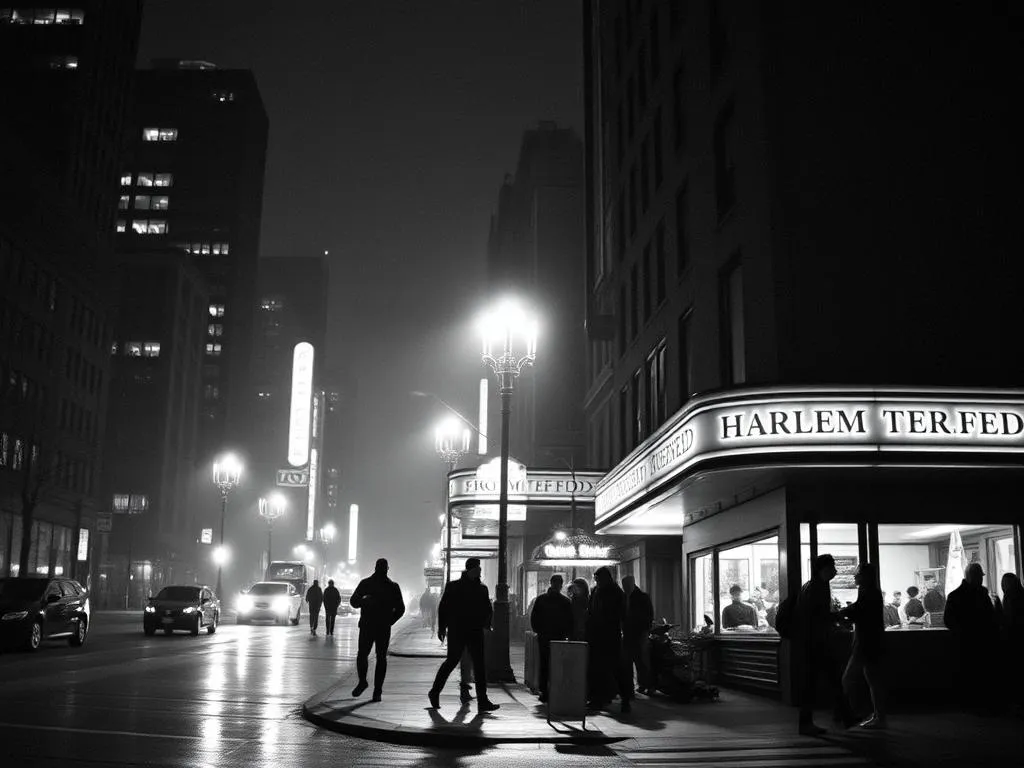Harlem Deferred Dream Meaning: Exploring the Symbolic Significance

Introduction
The concept of the “Harlem deferred dream” has long held a powerful place in literature and popular culture. Coined by the renowned poet Langston Hughes, this phrase speaks to the experiences of marginalized communities and the challenges they face in pursuing their aspirations. Understanding the Harlem deferred dream meaning can provide valuable insights into the human condition, the struggles for social justice, and the resilience of the human spirit.
In this article, we will delve into the symbolic significance of the Harlem deferred dream and explore how it resonates with individuals and communities today. By examining the historical context and the deeper layers of meaning, we can gain a richer understanding of this powerful metaphor and its relevance in our modern world.
The Harlem Deferred Dream: Uncovering the Symbolism
The Harlem deferred dream is a concept that emerged from Langston Hughes’ 1951 poem, “Harlem,” which poses the question, “What happens to a dream deferred?” This poignant query speaks to the experiences of African Americans and other marginalized communities who have been denied the opportunity to fully realize their dreams and aspirations.
The Harlem deferred dream might mean the postponement or suppression of personal, social, or economic goals due to systemic barriers and oppression. It could suggest the frustration, disappointment, and even despair that can arise when individuals or communities are prevented from achieving their desired outcomes.
The Historical Context: Harlem and the Struggle for Equality
The Harlem neighborhood in New York City has long been a symbol of the African American experience, both in terms of its vibrant cultural heritage and the challenges faced by its residents. During the Harlem Renaissance of the 1920s, the area was a hub of artistic and intellectual expression, as writers, musicians, and thinkers sought to celebrate and uplift their community.
However, the Harlem deferred dream also reflects the broader struggle for racial equality and social justice that has been a central part of the African American experience. Decades of systemic discrimination, limited economic opportunities, and social marginalization have often prevented many in the Harlem community from realizing their full potential.
The Psychological Impact: Deferred Dreams and Mental Well-being
The Harlem deferred dream can often represent the emotional and psychological toll that accompanies the postponement or suppression of one’s aspirations. When individuals or communities are denied the chance to pursue their dreams, it can lead to feelings of frustration, hopelessness, and even depression.
The inability to actualize one’s goals can contribute to a sense of personal and collective disempowerment, as people may feel that their dreams are forever out of reach. This can have far-reaching consequences for mental health, as individuals may struggle with low self-esteem, anxiety, and a diminished sense of purpose.
The Resilience of the Human Spirit: Overcoming Deferred Dreams
Despite the challenges posed by the Harlem deferred dream, the human spirit has demonstrated remarkable resilience in the face of adversity. Throughout history, marginalized communities have found ways to assert their agency, challenge oppressive systems, and pursue their aspirations, even in the face of daunting obstacles.
The Harlem deferred dream can also represent the determination and perseverance of those who refuse to give up on their dreams. By drawing on the strength of their communities, tapping into their own inner resources, and advocating for systemic change, individuals and groups have been able to overcome the barriers that have prevented them from realizing their full potential.
The Relevance Today: The Harlem Deferred Dream in Contemporary Contexts
The Harlem deferred dream continues to resonate with individuals and communities across the globe who face similar challenges in pursuing their aspirations. From the ongoing struggles for racial justice and economic equity to the experiences of marginalized groups seeking to overcome systemic barriers, the concept of the deferred dream remains a powerful metaphor for the human condition.
In contemporary contexts, the Harlem deferred dream might mean the postponement of dreams related to education, career, homeownership, or other areas of life where individuals or communities have faced disproportionate obstacles. It could suggest the frustration and disillusionment that can arise when the promise of the “American Dream” remains elusive for so many.
Conclusion: Embracing the Harlem Deferred Dream as a Call to Action
The Harlem deferred dream is a powerful and poignant concept that invites us to reflect on the experiences of marginalized communities and the ongoing struggle for social justice. By understanding the symbolic significance of this metaphor, we can gain a deeper appreciation for the resilience of the human spirit and the importance of collective action in overcoming systemic barriers.
As we grapple with the challenges of our time, the Harlem deferred dream can serve as a call to action, inspiring us to work towards a more equitable and inclusive society where all individuals and communities have the opportunity to pursue their aspirations and realize their full potential. By embracing this metaphor and the lessons it offers, we can move closer to a world where the dreams of the Harlem community and all marginalized groups are no longer deferred, but rather celebrated and realized.








